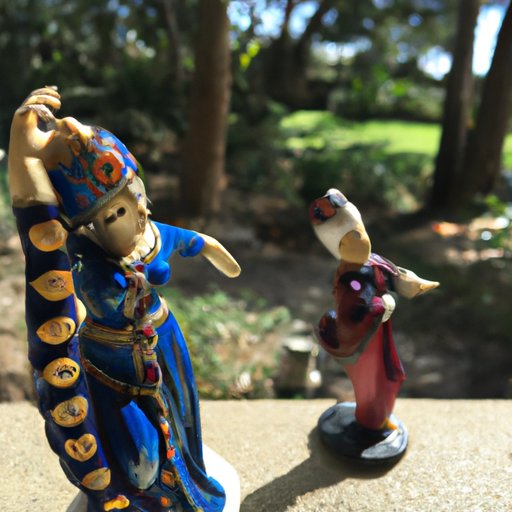Introduction
Cultural beliefs are a set of shared values, attitudes, norms and practices that are accepted by a particular society or group of people. They shape the way individuals think and interact with each other, as well as how they make decisions within their social environment. In this article, we will explore the origins of cultural beliefs, their influence on society and individuals, and their role in decision-making.

Exploring the Origins of Cultural Beliefs
Cultural beliefs have evolved over time, with each generation passing down their values to the next. Historical context has played an important role in shaping cultural beliefs, as certain events have shaped the way people think and act. Religion and philosophy have also had a significant influence, as religious teachings and philosophical ideas have been used to justify certain behaviors and attitudes.
Traditions and customs have also contributed to the development of cultural beliefs. These traditions and customs are often passed down from one generation to the next, and they provide a sense of identity and belonging for those who follow them. As such, they play an important role in shaping cultural beliefs.

Examining the Influence of Cultural Beliefs on Society
Cultural beliefs have a powerful influence on social structures and political processes. They shape the way people view the world and how they interact with each other. For example, certain cultural beliefs may dictate which social roles are acceptable and which are not, or which political processes are legitimate and which are not.
Cultural beliefs can also constrain personal expression. Individuals may feel compelled to suppress certain aspects of themselves in order to conform to the established norms of their society or group. This can lead to feelings of frustration, resentment and alienation.
Investigating the Impact of Cultural Beliefs on Individuals
Cultural beliefs can have a profound impact on individuals. They can shape the formation of identities, the development of values and attitudes, and the restrictions placed on behavior. For instance, certain cultural beliefs may dictate what kind of clothing is acceptable to wear or which activities are considered appropriate.
Cultural beliefs can also shape the way individuals communicate with each other. Different cultures have different styles of communication, and these styles can vary greatly depending on the context. Understanding these differences can be key to effective communication and successful relationships.
Analyzing How Cultural Beliefs Shape Social Interaction
Cultural beliefs can have a significant impact on conflict resolution and negotiation strategies. Certain beliefs may dictate how disputes are resolved or how negotiations are conducted. Understanding these beliefs can help individuals better understand the dynamics of social interaction.
Cultural beliefs can also influence the way people interact with each other. For instance, certain cultures may place more emphasis on respect and politeness, while others may prioritize directness and honesty. Understanding these differences can help individuals adapt their behavior accordingly.
Evaluating the Role of Cultural Beliefs in Decision-Making
Cultural beliefs can also shape the way individuals make decisions. By understanding the decision-making process, individuals can better assess the risks associated with certain choices and determine the best course of action. Examining the role of cultural beliefs in decision-making can help individuals make more informed and rational decisions.
Cultural beliefs can also affect the way groups make decisions. Group dynamics can be influenced by certain cultural beliefs, and understanding these dynamics can help groups work together more effectively. Through understanding the role of cultural beliefs in decision-making, individuals and groups can better navigate their social environment.

Comparing Cultural Beliefs Across Different Cultures
Finally, it is important to understand how cultural beliefs vary across different cultures. While some beliefs may be shared among many cultures, others may be unique to specific regions or countries. Examining the commonalities and differences between various cultures can help individuals appreciate the diversity of beliefs around the world.
It is also important to consider how cross-cultural influences affect cultural beliefs. The spread of ideas and practices across cultures can shape the development of certain beliefs, as well as the way individuals interpret them. Understanding these influences can help individuals better understand the complexities of cultural beliefs.
Conclusion
In conclusion, cultural beliefs are a powerful force that shape the way individuals think, interact and make decisions. They have evolved over time, and their influence can be seen in social structures, political processes and personal expression. Examining the origins, impact and role of cultural beliefs can help individuals better understand their own culture and appreciate the diversity of beliefs around the world.
(Note: Is this article not meeting your expectations? Do you have knowledge or insights to share? Unlock new opportunities and expand your reach by joining our authors team. Click Registration to join us and share your expertise with our readers.)
